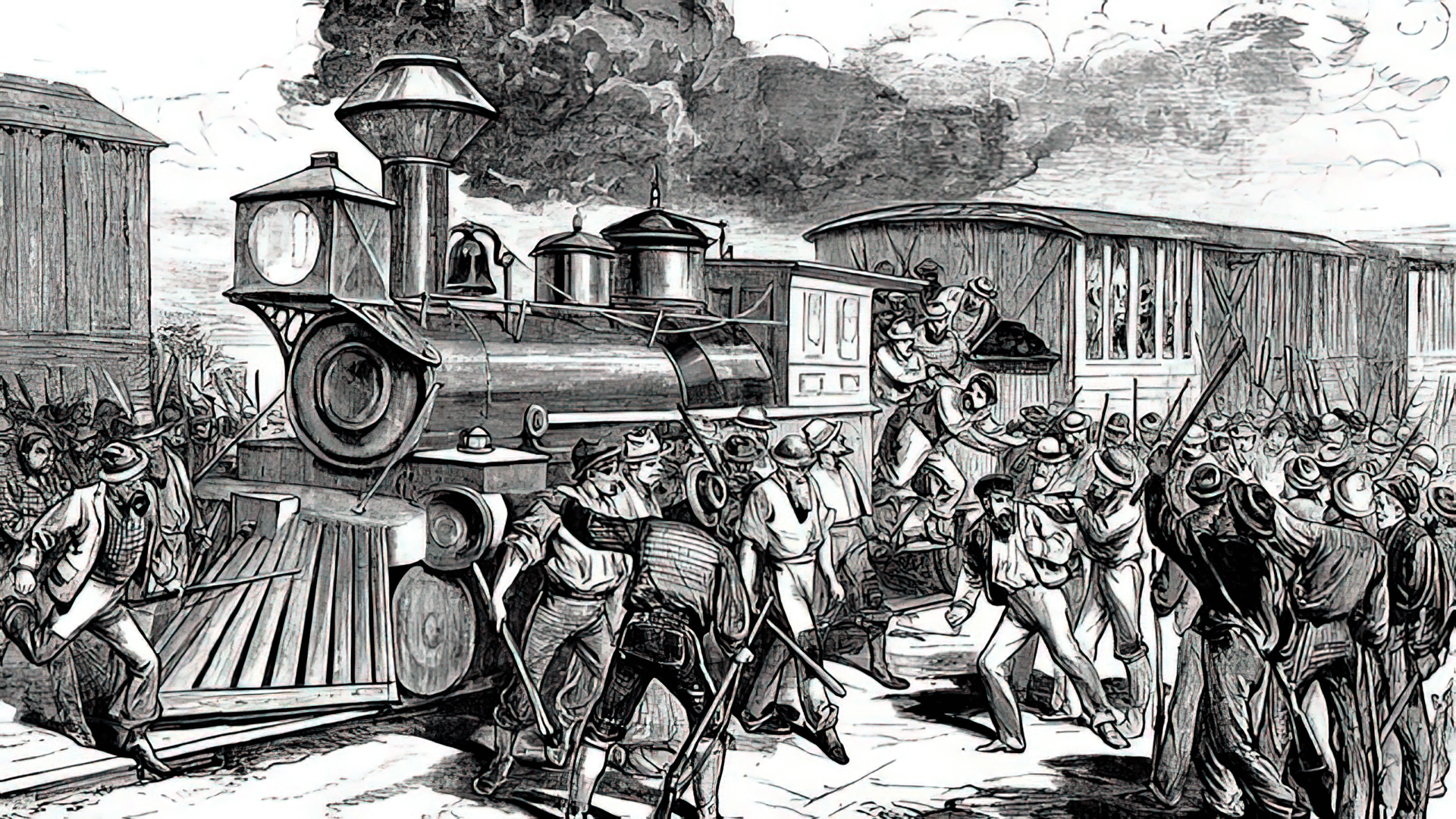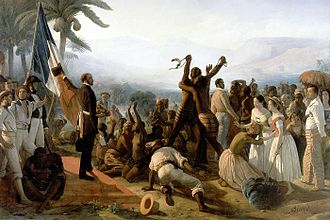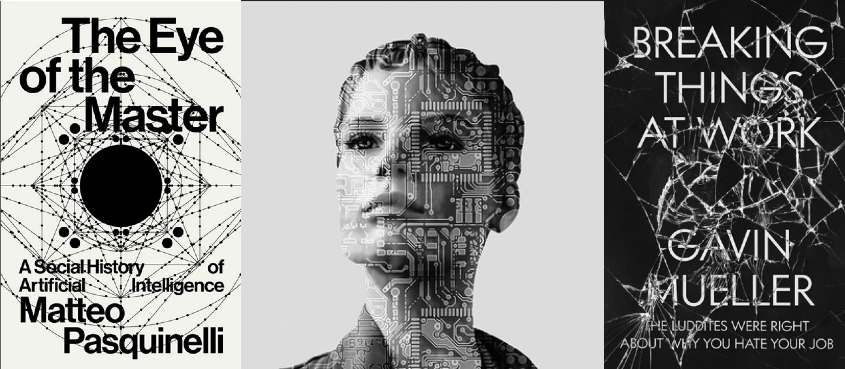Solidarity
Reading Du Bois’s Black Reconstruction
Online: Zoom link will be provided to registered participantsA close reading over 10 weeks of W.E.B. Du Bois's classic work, Black Reconstruction, with Sean Ahern. The book provides a basis for a much overdue revolution in US labor history. As Du Bois so eloquently and bluntly put in in 1935: “The South, after the war, presented the greatest opportunity for a real national labor movement which the nation ever saw or is likely to see again for many decades. Yet, the labor movement, with but few exceptions, never realized the situation. It never had the intelligence or knowledge, as a whole, to see in black slavery and Reconstruction, the kernel and meaning of the labor movement in the United States.”
Reading Du Bois’s Black Reconstruction
Online: Zoom link will be provided to registered participantsA close reading over 10 weeks of W.E.B. Du Bois's classic work, Black Reconstruction, with Sean Ahern. The book provides a basis for a much overdue revolution in US labor history. As Du Bois so eloquently and bluntly put in in 1935: “The South, after the war, presented the greatest opportunity for a real national labor movement which the nation ever saw or is likely to see again for many decades. Yet, the labor movement, with but few exceptions, never realized the situation. It never had the intelligence or knowledge, as a whole, to see in black slavery and Reconstruction, the kernel and meaning of the labor movement in the United States.”
Reading Du Bois’s Black Reconstruction
Online: Zoom link will be provided to registered participantsA close reading over 10 weeks of W.E.B. Du Bois's classic work, Black Reconstruction, with Sean Ahern. The book provides a basis for a much overdue revolution in US labor history. As Du Bois so eloquently and bluntly put in in 1935: “The South, after the war, presented the greatest opportunity for a real national labor movement which the nation ever saw or is likely to see again for many decades. Yet, the labor movement, with but few exceptions, never realized the situation. It never had the intelligence or knowledge, as a whole, to see in black slavery and Reconstruction, the kernel and meaning of the labor movement in the United States.”
Reading Du Bois’s Black Reconstruction
Online: Zoom link will be provided to registered participantsA close reading over 10 weeks of W.E.B. Du Bois's classic work, Black Reconstruction, with Sean Ahern. The book provides a basis for a much overdue revolution in US labor history. As Du Bois so eloquently and bluntly put in in 1935: “The South, after the war, presented the greatest opportunity for a real national labor movement which the nation ever saw or is likely to see again for many decades. Yet, the labor movement, with but few exceptions, never realized the situation. It never had the intelligence or knowledge, as a whole, to see in black slavery and Reconstruction, the kernel and meaning of the labor movement in the United States.”
Reading Du Bois’s Black Reconstruction
Online: Zoom link will be provided to registered participantsA close reading over 10 weeks of W.E.B. Du Bois's classic work, Black Reconstruction, with Sean Ahern. The book provides a basis for a much overdue revolution in US labor history. As Du Bois so eloquently and bluntly put in in 1935: “The South, after the war, presented the greatest opportunity for a real national labor movement which the nation ever saw or is likely to see again for many decades. Yet, the labor movement, with but few exceptions, never realized the situation. It never had the intelligence or knowledge, as a whole, to see in black slavery and Reconstruction, the kernel and meaning of the labor movement in the United States.”
‘The Man Who Changed Colors’
Recording available on YouTubeVideo available at https://youtu.be/ABOczzUs8nQ
Bill Fletcher Jr's 'The Man Who Changed Colors' delves into the complicated relationships between Cape Verdean Americans and African Americans, Portuguese fascist gangs, and abusive shipyard working conditions. When a dockworker falls to his death under strange circumstances, investigative journalist David Gomes is on the case. His dogged pursuit of the truth puts his life in danger and upends the scrappy Cape Cod newspaper he works for.
Reading Du Bois’s Black Reconstruction
Online: Zoom link will be provided to registered participantsA close reading over 10 weeks of W.E.B. Du Bois's classic work, Black Reconstruction, with Sean Ahern. The book provides a basis for a much overdue revolution in US labor history. As Du Bois so eloquently and bluntly put in in 1935: “The South, after the war, presented the greatest opportunity for a real national labor movement which the nation ever saw or is likely to see again for many decades. Yet, the labor movement, with but few exceptions, never realized the situation. It never had the intelligence or knowledge, as a whole, to see in black slavery and Reconstruction, the kernel and meaning of the labor movement in the United States.”
Reading Du Bois’s Black Reconstruction
Online: Zoom link will be provided to registered participantsA close reading over 10 weeks of W.E.B. Du Bois's classic work, Black Reconstruction, with Sean Ahern. The book provides a basis for a much overdue revolution in US labor history. As Du Bois so eloquently and bluntly put in in 1935: “The South, after the war, presented the greatest opportunity for a real national labor movement which the nation ever saw or is likely to see again for many decades. Yet, the labor movement, with but few exceptions, never realized the situation. It never had the intelligence or knowledge, as a whole, to see in black slavery and Reconstruction, the kernel and meaning of the labor movement in the United States.”
Reading Du Bois’s Black Reconstruction
Online: Zoom link will be provided to registered participantsA close reading over 10 weeks of W.E.B. Du Bois's classic work, Black Reconstruction, with Sean Ahern. The book provides a basis for a much overdue revolution in US labor history. As Du Bois so eloquently and bluntly put in in 1935: “The South, after the war, presented the greatest opportunity for a real national labor movement which the nation ever saw or is likely to see again for many decades. Yet, the labor movement, with but few exceptions, never realized the situation. It never had the intelligence or knowledge, as a whole, to see in black slavery and Reconstruction, the kernel and meaning of the labor movement in the United States.”
What Do We Need Bosses For? with Pete Dolack
Online: Zoom link will be provided to registered participantsPete Dolack's latest book, What Do We Need Bosses For?: Toward Economic Democracy, analyzes past and present efforts to establish systems of economic democracy on a national or society-wide basis. In this context the book dissects the mounting inequalities of capitalism and discusses theoretical ideas as to how we might organize a better world.
Theodore Allen’s ‘The Kernel and Meaning’: A Strategic Critique of U.S. Labor History
Online: Zoom link will be provided to registered participantsBefore Theodore W. Allen turned to his magnum opus, The Invention of the White Race, he drafted an essay "The Kernel and Meaning: A Contribution to a Proletarian Critique of U.S. Historiography." In it, he assessed how the industrial bourgeoisie successfully overturned plantation capital's rule while assuring its own ascendancy over the proletariat. Allen reviewed six commonly held explanations as to why, despite favorable objective conditions, the U.S. left and workers movements failed to establish socialism or even a permanent working-class party. Participants in this group will read and discuss the original, 160-page typescript of Allen's unpublished essay.
Animals, Capitalism, Marxism: A Conversation
Online: Zoom link will be provided to registered participantsDinesh Joseph Wadiwel and Alex Blanchette explore the potential and limits of Marxist theory for addressing the roles and fates of nonhuman animals, as well as ways to connect anticapitalist struggles to animal liberation and environmental justice. Wadiwel is the author of Animals and Capital and Blanchette is the author of Porkopolis: American Animality, Standardized Life, and the Factory Farm.
David McNally: Marx and Colonialism
Recording available on YouTubeDavid McNally joins our 10th anniversary celebration of the MEP with a keynote talk on "Marx and Colonialism: The End of Capital and the Beginning of a Journey."
AI versus Labor: Luddism and Beyond
Online: Zoom link will be provided to registered participants8 weekly sessions starting Oct 1. Is Artificial Intelligence (AI, sic) really the dire threat to the future of humanity as even some of its proponents claim, or is it a more mundane and familiar threat to working people who face loss of their livelihoods and/or further speed-up and alienation? The entire history of industrial capitalism is punctuated by recurring waves of automation to reduce labor costs and turnover time, each time provoking strong resistance by the affected workforce. This reading group will probe the history both of AI and computer technology specifically and of working-class resistance to capitalist automation in general.
State of Emergency in US Higher Education
Recording available on YouTubeAlan Wald presents an overview of the state of emergency in higher education in the United States that recalls earlier eras of extreme political repression, such as McCarthyism in the 1950s. Students, faculty, and staff at US colleges and universities who stand up for Palestinian human rights and stopping the genocide in Gaza are being threatened with deportation and punished by the administrations.





